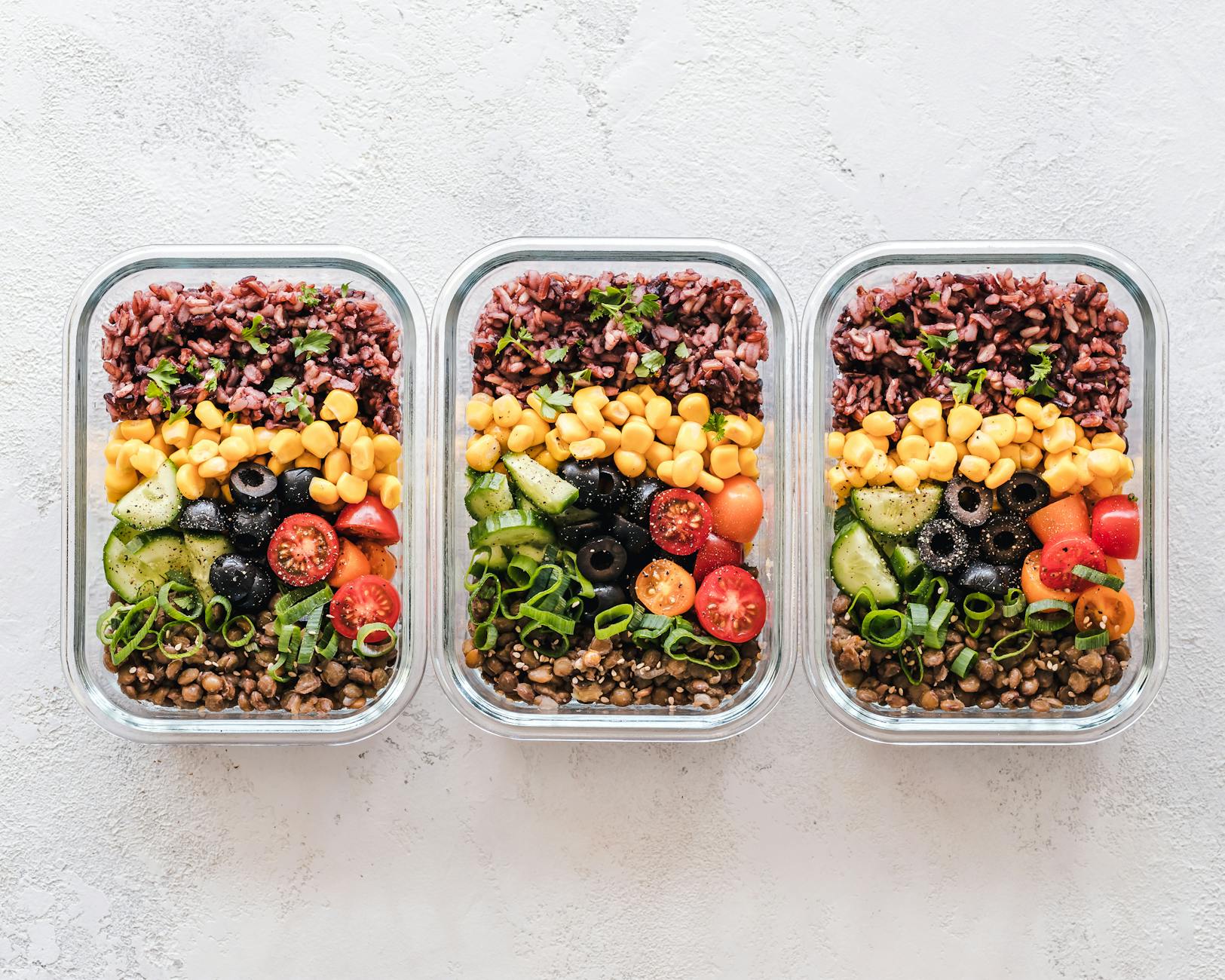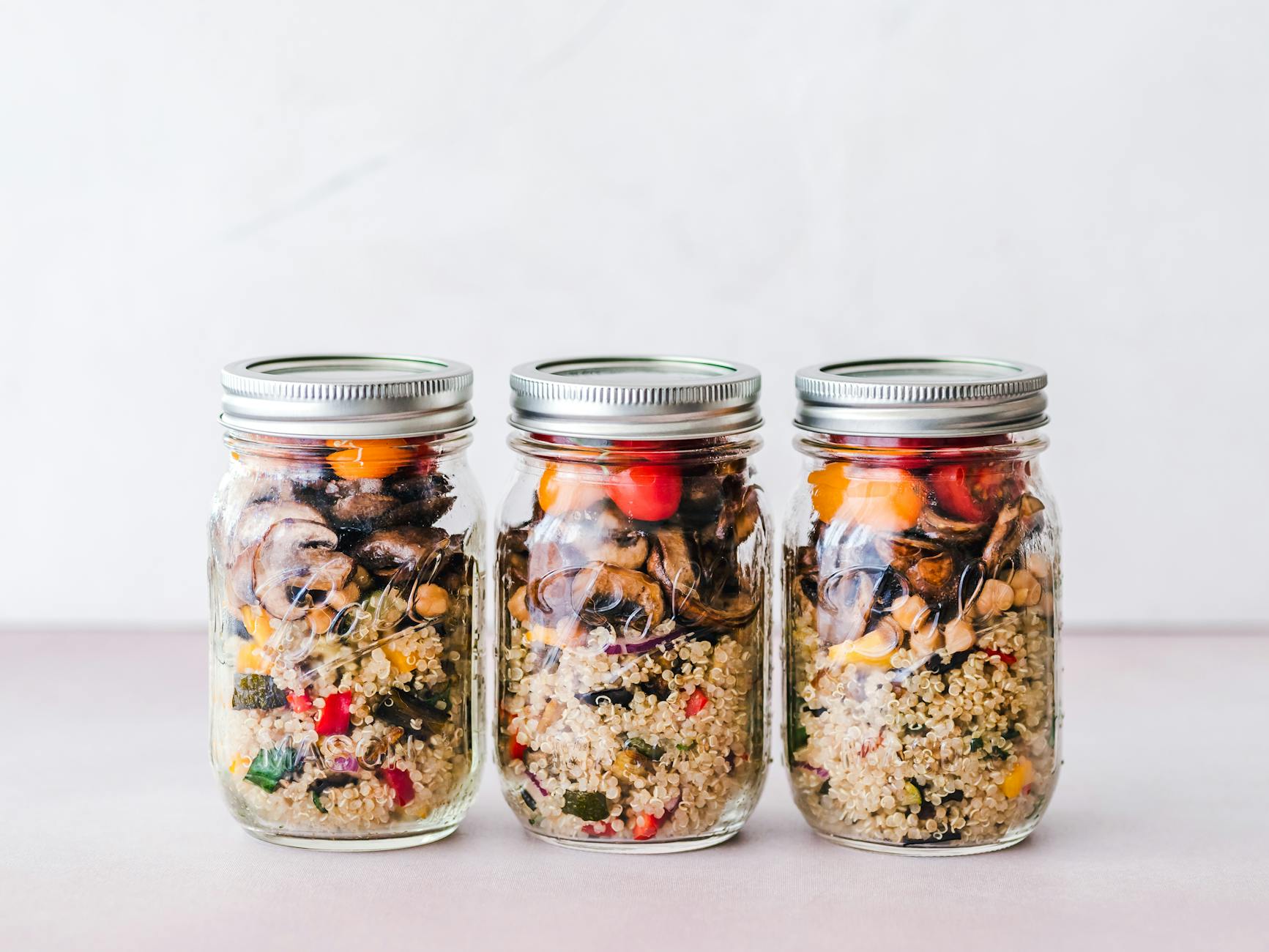Mastering Meal Planning: Your Ultimate Guide to a Healthier and Happier Lifestyle
Meal planning is not just about organising your weekly meals; it’s a game changer for your health, time management, and overall lifestyle. If you’re looking to save time, eat healthier, and reduce food waste, mastering meal planning is a skill you need to adopt. Let’s dive into the key steps to perfecting this practice and why it’s essential for your well-being.
1. Understand the Importance of Meal Planning

Meal planning is the art of preparing your meals in advance, whether it’s for a week or a few days. This proactive approach allows you to have complete control over what you eat, ensuring your diet is balanced, nutritious, and aligned with your health goals. By organising your meals ahead of time, you reduce the likelihood of making impulsive food choices that often lead to unhealthy eating habits. It’s also a great way to save money, as you’re less likely to splurge on takeout or waste groceries.
2. Assess Your Dietary Needs and Goals

Before you start planning meals, assess your dietary requirements and goals. Whether you’re aiming to lose weight, build muscle, or maintain a balanced diet, your meal plan should reflect these targets. Pay attention to macronutrients—proteins, carbohydrates, and fats—as well as vitamins and minerals. Consider any food allergies, intolerances, or preferences you have, ensuring that your meal plan is both enjoyable and beneficial to your body.
3. Build a Balanced Menu

Creating a balanced menu is key to meal planning success. Aim to include a variety of fruits, vegetables, lean proteins, whole grains, and healthy fats in each meal. Think about how each meal can fuel your body for the day. Breakfast should energise you, lunch should sustain you, and dinner should be lighter and easy to digest. Don’t forget snacks—healthy options like nuts, fruits, or yoghurt can prevent overeating during main meals.
4. Start with a Weekly Plan

A weekly plan is the simplest way to get started with meal planning. Begin by selecting a few core meals that you can rotate throughout the week. Look for recipes that are easy to prepare and store well. Batch cooking and prepping in advance can be a huge time saver. For instance, cook grains like quinoa or rice in bulk, prepare your proteins, and chop veggies for easy access throughout the week.
5. Create a Shopping List and Stick to It

Once your meal plan is set, the next step is crafting a shopping list. Having a clear list prevents impulse purchases and ensures that you only buy what you need. Organise your shopping list by sections (produce, dairy, grains, etc.) to make your trip more efficient. Many people find that shopping once a week or twice a month helps them avoid unnecessary trips to the grocery store and keeps food waste to a minimum.
6. Master the Art of Batch Cooking

Batch cooking is a fantastic way to ensure you always have healthy meals on hand. This method involves cooking large quantities of food at once, dividing them into portions, and storing them for later use. You can prepare meals for the entire week, which is perfect for busy individuals or families. Invest in good-quality containers that are freezer-safe and microwaveable, making reheating your meals quick and easy.
7. Use Technology to Stay Organized

There are numerous apps available that can help with meal planning. From generating shopping lists to offering recipe suggestions based on the ingredients you already have, technology can be a game-changer. Some apps even allow you to input your dietary preferences and goals, offering customised meal plans that suit your lifestyle. Utilising these tools can make meal planning less overwhelming and more enjoyable.
8. Focus on Portion Control

While planning meals, pay attention to portion sizes. It’s easy to overeat if portions are too large, even if the meals are healthy. Investing in a food scale or using portion control guides can help you stay on track. Be mindful of how much protein, carbs, and fat you consume, and adjust your portions based on your activity level and personal needs.
9. Plan for Flexibility

Life is unpredictable, and your meal plan should reflect that. Plan for a few “flex meals” where you can order in or eat out, and don’t stress if you need to adjust the plan mid-week. The goal of meal planning is to make life easier, not more restrictive. Allow yourself some room for spontaneous meals and cravings, as long as they fit within your overall health goals.
10. Review and Adjust Your Meal Plan

At the end of each week, review how your meal plan worked for you. Did you enjoy the meals? Were you able to stick to your plan? Did you notice any improvements in your energy levels or mood? Use this feedback to adjust the following week’s meals. Over time, you’ll become more efficient and knowledgeable about what works best for your body and lifestyle.
FAQ Section
1. What if I don’t have time to meal plan?
Start small! You don’t have to plan every single meal. Begin by prepping just lunches or dinners for a few days. Over time, you’ll get quicker and more efficient at planning and preparing your meals.
2. Can I meal plan for a family with different dietary preferences?
Yes, you can. Create a base meal that can be easily customised. For example, prepare a large salad where family members can add their favourite proteins or toppings.
3. How do I keep my meals from getting boring?
Variety is key. Try new recipes, use different spices, and rotate ingredients weekly. Explore different cuisines to keep your meals exciting and flavourful.
4. Is meal planning expensive?
Meal planning can actually save you money. By buying ingredients in bulk and using them efficiently, you reduce waste and avoid last-minute takeout, which tends to be more expensive.
5. Can I meal plan if I don’t like leftovers?
Yes, simply plan meals that are quick to cook in small portions, so you can enjoy freshly prepared food every day without dealing with leftovers.
6. How do I store meals properly?
Use airtight containers and label them with dates. Refrigerated meals typically last 3-4 days, while frozen meals can last up to 3 months.
7. Can I still meal plan if I eat out frequently?
Absolutely! Just plan fewer meals at home and allow yourself the flexibility to enjoy meals out without compromising your overall diet.
8. How do I handle cravings or spontaneous eating?
Include snacks in your meal plan. This way, when cravings hit, you have healthy options available. It’s also okay to treat yourself occasionally—just get back on track afterward.
9. Can I meal plan on a plant-based diet?
Yes, meal planning works for all dietary preferences, including plant-based diets. Focus on whole grains, legumes, fruits, and vegetables to ensure a balanced intake of nutrients.
10. How can I make meal planning more sustainable?
Buy seasonal produce, reduce food waste by only buying what you need, and consider plant-based options to lower your environmental impact.
Disclaimer:
The information in this article is intended for general educational purposes only and is not a substitute for professional advice. Always consult a qualified healthcare provider for personalised guidance on your nutritional needs. Readers are encouraged to do their own research before making any dietary changes.
Discover more from hsnrev.com
Subscribe to get the latest posts sent to your email.




